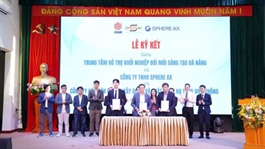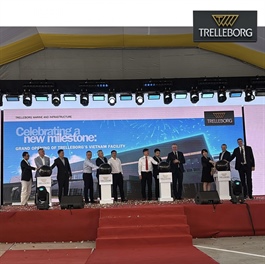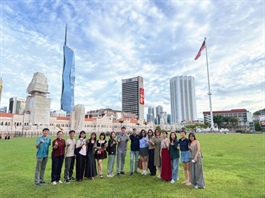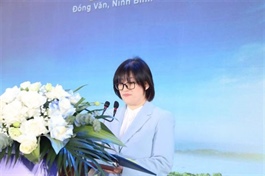Vietnam empowers private sector through reforms and green-digital transformation
Vietnam empowers private sector through reforms and green-digital transformation
Sweeping reforms in 2025 are reshaping Vietnam's growth model, with innovation, high technology, and private-sector dynamism at the centre. Through digitalisation, green finance, and supportive policies, the Ministry of Finance (MoF) aims to unlock new opportunities for businesses and strengthen Vietnam's position in global green supply chains.
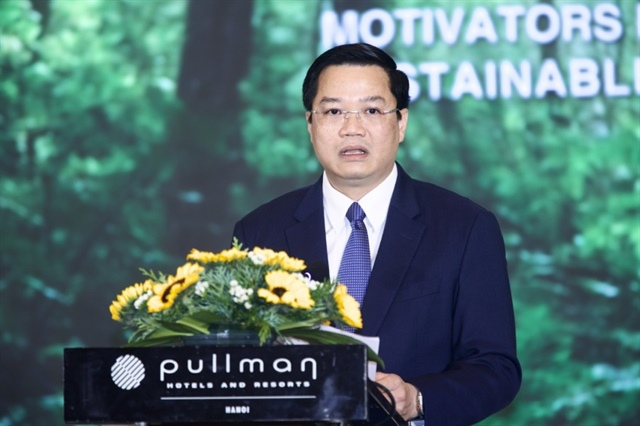
MoF Deputy Minister Nguyen Duc Tam |
At the Sustainable Development 2025 Conference on November 27 in Hanoi, MoF Deputy Minister Nguyen Duc Tam said that Vietnam has proactively implemented extensive strategic reforms to adapt to evolving realities and pursue sustainable development.
The Party and the government are working to promote a new growth model with key priorities.
First, promoting the private sector by positioning it as one of the most important drivers of the economy, and creating a favourable environment for businesses to grow and innovate.
Second, fostering innovation and advancing science and technology by increasing investment in research and high-tech applications to enhance competitiveness and economic efficiency. This marks a pivotal breakthrough that enables the private sector to expand strongly and become a pillar of the economy.
Third, driving deeper structural transformation. Vietnam is implementing a development strategy based on the “four-pillar framework”, the priority orientations set by the Party and the government. Numerous resolutions have been issued by the Politburo to support economic development and help the country achieve double-digit growth in the coming years.
In addition, 2025 marks a significant milestone in Vietnam’s development history, a starting point for a new era, as the national administrative map undergoes major changes.
“Promoting digital transformation and green transformation is one of the ways the MoF affirms its position and role as a pioneering force in national economic reform and development,” the deputy minister said.
Accordingly, the MoF has been implementing sector-wide digital transformation, placing citizens and businesses at the centre. The MoF continues to accelerate innovation, develop the digital economy and digital finance in line with Resolution No.57-NQ/TW, aiming to build a modern, transparent, efficient, and highly adaptive finance sector based on digital technology and data, meeting the requirements of public financial management and the development of the digital economy and digital society.
“The MoF has consistently recognised science and technology as the foundation, innovation as the driver, digital infrastructure as the prerequisite, and data as a strategic resource,” he emphasised. Digital transformation must be linked with administrative reforms, ensuring that all sectoral databases, from taxation, treasury, customs, securities, state reserves, pricing, insurance, public debt, public assets, state capital in enterprises, shared electronic catalogues, financial-banking data, accounting and auditing, social insurance, public procurement, enterprises, public investment.
Alongside digital transformation, green transformation is a strategic priority that the Vietnamese government is steadfastly pursuing. Following the Prime Minister’s directives, the MoF has issued and implemented a green taxonomy, a crucial policy tool designed to identify, assess, and promote environmentally friendly projects.
The taxonomy includes 45 project types across seven key economic sectors such as renewable energy, green transport, sustainable construction, circular agriculture, and environmental services. “This marks a major step forward in establishing an institutional framework for the green finance market, helping mobilise domestic and international resources for sustainable development,” he said.
Since the beginning of the year, the total value of green bond issuance in the domestic market has increased by more than 60 per cent on-year, signifying investors’ strong confidence in the government’s and Vietnamese businesses’ green development commitments.
“Green transformation is not only a global requirement, but also an opportunity for Vietnamese enterprises to restructure development strategies, mitigate risks, improve energy efficiency, and expand their international market presence,” the MoF deputy minister noted.
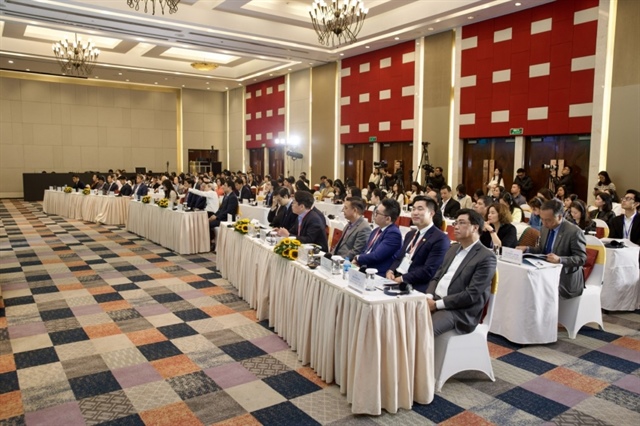
Sustainable Development 2025 Conference with the theme “Motivators for a Sustainable Era” |
However, both digital and green transformation face numerous challenges, including institutional barriers, financial constraints, technological infrastructure limitations, and workforce capacity. Many small- and medium-sized enterprises, which account for 97 per cent of all domestic businesses, still struggle to access green finance, new technologies, or digital data.
For this reason, the MoF, and relevant ministries and agencies, are working to improve the financial policy framework to provide stronger momentum for the private sector. “We are implementing tax incentives, preferential credit, and innovation support funds, while also studying public-private partnership mechanisms for digital infrastructure and renewable energy projects. These are concrete solutions aimed at encouraging businesses to invest, innovate, and actively participate in the dual transformation process,” he said.
In addition, the MoF continues to promote the development of the green finance market, the carbon market, and sustainable financial instruments. Our goal is that by 2030, Vietnam will establish an effective domestic carbon market connected with regional and global markets. This will be an important platform for Vietnamese enterprises to further integrate into global green supply chains and leverage domestic and international financial resources.
“Digital and green transformation are not two separate goals, but parallel processes that reinforce and complement each other. If digital transformation provides the technological foundation for efficient, transparent, and rapid governance, green transformation gives us a sustainable, humane, and future-oriented development pathway,” he said. “When combined, these two processes create powerful synergies that will enable Vietnam to advance confidently towards industrialisation, modernisation, and deeper global integration.”
“I firmly believe that with the strong political will of the Party and the state, combined with the efforts of the business community and the support of the people, we will successfully achieve this dual transformation, positioning Vietnam as a developed, green, digital, and prosperous nation.”
- 12:28 27/11/2025







